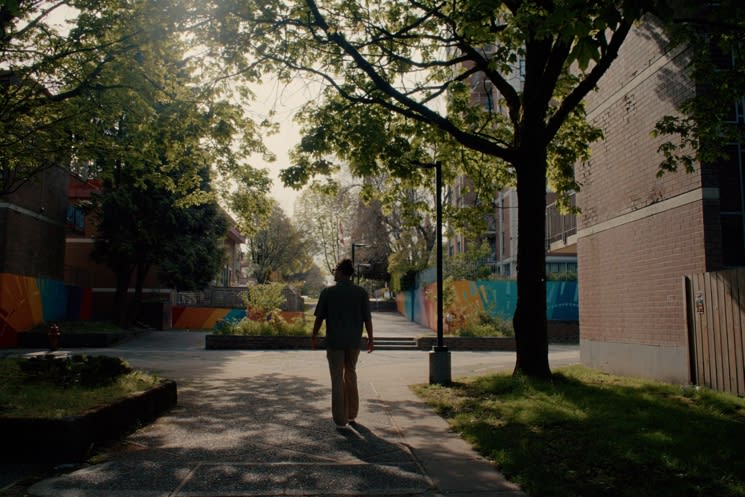A city known for its lush beauty, world-famous Asian cuisine and a storied music scene, Vancouver has given Canada, and the world over, lots to be proud of. However, like most Canadian cities, the corner of its rug only needs to be lifted to see the troubling history swept beneath it.
Taking viewers through the neighbourhood that was once known as Hogan's Alley, a place of refuge and community for the city’s Black population, Jamila Pomeroy's documentary Union Street provides a captivating examination of systemic racism and Black resilience in Canada.
Enlisting Joshua Tecumseh Robertson, a curator and community historian, as the film's central tour guide through both past and present, the film shows how Black culture has long been woven into the city's fabric. Each thread is rich with stories of perseverance and community in the face of perpetual discrimination and segregation.
Unjustly pushed to the margins of society by government officials, Hogan's Alley was declared a "blight" on the city and designated for wide-scale demolition in the 1960s. Such tactics, and the strategic withholding of services, were often used on predominately minority communities to pressure them into decades spanning revitalization programs.
Developmental renewal may have been the sales pitch, but destruction was ultimately the result. The gentrification program, which included building a highway through the heart of the Black community, led to mass displacement that forced people into far worse situations. Many had to turn to protests and petitions to simply fight for basic rights, such as safe railway crossings to protect kids going to school.
As Pomeroy's film notes, it was through grassroots organizing that many things were achieved, including getting the Ku Klux Klan banned in the 1980s, despite the group being active in the city since 1925.
Union Street reminds viewers that the tentacles of racism are still far-reaching today. Racism is not only ingrained within institutions, including government policies and education systems, but in the stereotypes that form public perception. However, there are those who are striving to remove the grip that colonization has on the city. In speaking with Black shop owners, artists, educators, musicians, and clothing designers, the film showcases those who are reclaiming the sense of community once denied.
Creating spaces where Black community and culture can thrive, these individuals are still jumping over the same hurdles as those who came before them. For the DJ duo Albert Mundindi and Jason Joseph, this means bucking against the "urban" label that Black musicians are often pigeonholed in. Their sound may lean on the Afrobeats of their culture, but they make it clear that they can play all types of music.
This sense of forced identity is felt throughout the film. Many of the subjects Pomeroy interviews share their unease at being pressured into a costume that does not quite fit them. There are tales of individuals being told to give up their African dialect in school, feeling isolated within predominately white spaces, and being treated as the "other" simply because of the colour of their skin.
If there's one minor quibble with the documentary, it's that some of Pomeroy's stylistic choices hinder the pacing. In showcasing the works of those she interviews, the film sometimes walks a fine line between celebrating Black excellence and feeling like a commercial. Thankful, Pomeroy never actually lets the film fully become the latter.
An informative and engaging documentary, Union Street is a worthy addition to the recent wave of films that touch on the racial challenges in Vancouver (such as Handle with Care: The Legend of the Notic Streetball Crew, Riceboy Sleeps and Someone Like Me). The pillars of Canada's colonial past may still stand, but Union Street shows that reclaiming cultural identity is a powerful tool to knock those institutions down.
